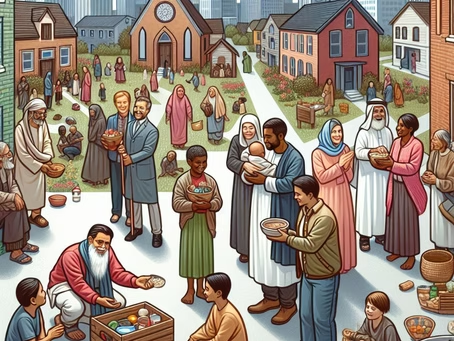The Christian Imperative for Social Justice
At the intersection of faith and action lies Christianity’s uncompromising call to defend the oppressed – not as optional charity but as essential discipleship.
Core Biblical Principles
- Prophetic mandate: “Seek justice, correct oppression” (Isaiah 1:17)
- Christological model: Jesus’ ministry to outcasts and sinners
- Ecclesial witness: Early church’s radical sharing (Acts 2:44-45)
- Eschatological urgency: “As you did to the least…” (Matthew 25:40)
Biblical Foundations of Justice
Torah’s Justice Framework
The Mosaic law established revolutionary protections:
| Practice | Justice Principle |
|---|---|
| Jubilee Year | Wealth redistribution |
| Gleaning Laws | Dignified provision |
| Alien Protection | Immigrant rights |
Jesus’ Subversive Compassion
“The Spirit of the Lord…has sent me to proclaim liberty to captives” – Luke 4:18
Christ’s ministry consistently:
- Elevated marginalized voices (Samaritan woman, Zacchaeus)
- Challenged religious exclusion (lepers, tax collectors)
- Redefined power as service (foot washing, John 13)
From Theology to Praxis
Threefold Justice Model
- Charity: Immediate relief (food, shelter)
- Advocacy: Systemic change (policy reform)
- Solidarity: Relational equality
Historical Christian Witnesses
Transformative examples:
- Basil the Great’s 4th century poorhouses
- Quaker anti-slavery activism
- Bonhoeffer’s Confessing Church resistance
- MLK’s Beloved Community vision
Contemporary Applications
Church-Based Justice Initiatives
Effective models include:
| Initiative | Impact Area |
|---|---|
| Prison ministries | Criminal justice reform |
| Refugee sponsorship | Immigrant support |
| Fair trade partnerships | Economic justice |
Overcoming Compassion Fatigue
Sustainable justice requires:
- Rootedness in contemplative prayer
- Community accountability
- Strategic focus areas
- Celebration of small victories
Challenges & Reflections
Examining Privilege
“When we have power, we must be careful how we interpret Scripture” – Brenda Salter McNeil
Moving Beyond Charity
Essential paradigm shifts:
- From pity to partnership
- From temporary aid to empowerment
- From individual acts to systemic change
Frequently Asked Questions
How can busy Christians practice justice?
Start with conscious consumerism, educate yourself on one justice issue, and support specialized ministries through giving and prayer.
What if my church avoids social issues?
Begin with like-minded members using Matthew 18 principles. Share biblical studies on justice. Partner with existing community organizations.
How to avoid burnout in justice work?
Practice Sabbath justice – the rhythm of working and resting. Remember only God brings ultimate justice. Focus on faithfulness over results.

